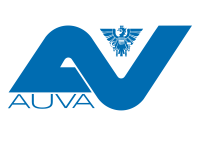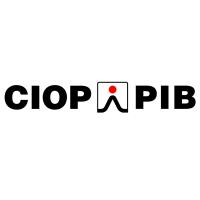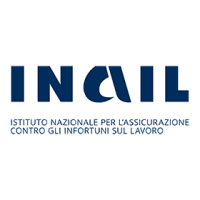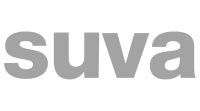
Napo Introduction Video – General risks
Other films featuring the character Napo are available at https://www.napofilm.net/en/napos-films/films?films=all.
The Napo Consortium currently has eight members
AUVA (Austria), CIOP (Poland), DGUV (Germany), EU-OSHA (Bilbao, Spain), INAIL (Italy), INRS (France), SUVA (Switzerland) and TNO(The Netherlands).








What should I do before I start working in the Czech Republic?
The basic requirement is to work in the Czech Republic (CZ) in accordance with legal regulations and to verify the legality of your stay in the Czech Republic. It is not sufficient to reside in the Czech Republic on the basis of a valid residence permit, you must also be authorized to work in the Czech Republic. Carrying out illegal work poses a number of risks not only to the employer, but also to the illegal worker (for example, citizens from third countries outside the EU may be expelled from the European Union). You should not rely solely on information from employers, intermediaries, or other persons, as such information may sometimes be misleading and create a false impression that your stay and work in the Czech Republic are legal. We recommend verifying that you are staying in the Czech Republic on the basis of a valid residence permit and familiarize yourself with the rights and obligations associated with it.
- Would you like to learn more about the conditions for entering the Czech Republic and working in compliance with legal regulations?
- Are you curious about the consequences of working illegally in the Czech Republic?
- Are you unsure if your work in the Czech Republic complies with legal regulations?
- Are you looking for information on the rights of foreigners in the areas of healthcare (including participation of foreigners in public health insurance) and social security?
If you are a non-EU citizen: www.pracecizincu.cz
If you are a citizen of another EU member state or a family member: www.eu-citizens.cz
Why should I even care about occupational health and safety (OSH)?
Because it's about your life and health, that is, the most precious thing you have.
There are risks in any job and dangerous situations can arise, whether you are sitting behind a computer in the office or operating an excavator on a construction site. Your actions may endanger not only yourself, but also others around you. Over the past three years, more than 1,500 foreigners have been injured at work in the Czech Republic – some seriously and some never returned from work. More information in the tab Occupational injuries of foreigners in the Czech Republic
If I am a foreigner, do the same OSH rules apply to me as to Czech citizens?
Yes.
Foreigners are subject to the same rights and obligations associated with OSH as citizens of the Czech Republic.
As an employee, you have the right to safety and health protection at work. Your employer has an obligation to ensure this to you as an employee. You can learn about other rights and obligations in the following FAQs.
My employer wants me to do a job that I believe is dangerous and puts my health at risk. Can I say no?
Yes.
As an employee, you are entitled to refuse work that you reasonably believe poses an immediate and serious threat to your life or health, or to the life or health of others (e.g. colleagues, passers-by, etc.). If you refuse to perform the work in these cases, it does not constitute a breach of your employee obligations.
My employer has not provided any information about ensuring OSH. Is that okay?
No.
As an employee, you have the right to be informed about the risks associated with your work. Your employer should also tell you what measures they have taken to protect you from the risks. The information must be understandable to you. This means that if you don't speak Czech at all or have a problem understanding it, your employer must make sure you understand the information by translating it into your mother tongue or another language you speak well. It is important that you fully understand the information presented. More information at OSH training
Do I also have responsibilities in terms of occupational safety and health?
Yes.
The basic obligations of an employee in the area of occupational safety and health protection include:
- Complying with legal and other OSH regulations related to your work with which you have been duly acquainted.
- Taking care of your own safety and health to the best of your ability.
- Take care of the safety and health of others (e.g. colleagues, members of the public) to the best of your ability.
- Following established working and technological procedures with which you have been properly acquainted.
- Using personal protective equipment and safety devices while working (you must not tamper with or deactivate safety devices).
- Reporting OSH deficiencies and hazards to your supervisor and participating in their elimination.
- Not consuming alcoholic beverages or other addictive substances at the workplace, and not starting work under their influence.
- Complying with the smoking ban at the workplace.
- Participating in OSH training.
- Undergoing occupational medical examinations, tests, or vaccinations related to your job position.
- Undergoing tests for the presence of alcohol or other addictive substances.
- Reporting to your supervisor that you have suffered an occupational injury, if your health condition allows. If you witness an injury to a colleague or other person, you must also report it to your supervisor without delay. You also need to cooperate in explaining the causes of the injury.
For more detailed information on OSH training, occupational medical examinations, occupational injuries, prohibition of alcohol and smoking in the workplace and PPE, see separate topics.
What about OSH responsibilities if I am in a managerial position?
The employer is responsible for occupational safety. However, OSH care is also an integral part of the job responsibilities of managerial staff at all levels of management within the scope of the positions in which they operate. Therefore, if you are a managerial employee, you take responsibility for OSH in your workplace or work area and have the obligation to create favorable working conditions and ensure occupational safety and health.
A managerial employee is responsible for the occupational safety of not only their subordinates but also of all persons who, with their knowledge, are present in the workplace. Remember that as a managerial employee you also have criminal liability.
Section 101 (2) of Act No. 262/2006 Coll., the Labor Code
Section 101 (5) of Act No. 262/2006 Coll., the Labor Code
Section 302 (1) (c) of Act No. 262/2006 Coll., the Labor Code
As an employee, can I participate in OSH-related matters at the workplace and discuss my objections and suggestions with the employer?
Yes.
You not only have the right but also the obligation to participate in creating a work environment that is safe and does not endanger health. For this purpose, you should follow all the employer's measures. You can participate in resolving OSH issues with your employer through a trade union or an OSH representative or directly as an employee. The employer must allow you (or the trade union or OSH representative) to participate in OSH-related meetings or provide information from such meetings. The employer is also obliged to hear your information, comments, and suggestions related to OSH. The employer is also required to discuss a number of OSH-related issues with you: e.g. measures they have taken, risk assessment, organization of OSH training, appointment of a competent person for risk prevention, selection of an occupational health service provider, selection of employees designated to organize first aid, etc.